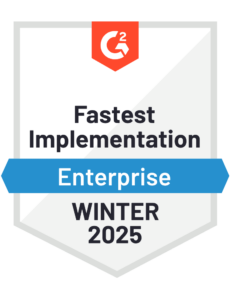What is SOX Compliance?
Blog post
Share
SOX is short for the Sarbanes-Oxley Act that addresses financial reporting, internal controls and audit requirements for corporations. The law was passed by the U.S. Congress in 2002 in an effort to restore public trust in the financial system after a series of high-profile corporate and accounting scandals that included Enron.
SOX creates a series of internal controls for financial record-keeping while providing strict oversight of the accounting practices of large companies. In an effort to promote accountability, it mandates that key figures within a corporation, including the CFO and CEO, must sign statements attesting to the accuracy of their organization’s financial reports.
The Basic Elements of SOX Compliance
The text of the Sarbanes-Oxley Act is more than 60 pages with four sections specifically addressing the major areas of reform. They are:
Section 302: Corporate Responsibility for Financial Reports
This portion of SOX requires the CEO and CFO of a corporation to personally attest to the accuracy and integrity of the corporation’s quarterly and annual financial reports. It also compels those executives to certify that the company’s internal controls are in compliance with the SEC’s disclosure requirements.
Section 401: Disclosures in Periodic Reports
This section emphasizes the need for accuracy in financial statements and requires them to be presented in a way that does not include or omit information that could be interpreted as misleading. Section 401 also requires that all material off-balance sheet transactions, particularly those that might expose the company to risk, be included in financial statements in order to enhance transparency.
Section 404: Management Assessment of Internal Controls
This section requires the establishment of internal controls and reporting methods to ensure those controls are adequate. In addition, corporate management must certify the effectiveness of all controls and disclose any shortcomings on an annual basis.
Section 906: Corporate Responsibility for Financial Reports
This section calls for penalties of up to $5 million and as much as 20 years in prison for managers who violate SOX requirements and certify a misleading or fraudulent financial report.
Who Has to Comply with SOX?
This may seem like a US-only issue that is irrelevant to companies in other countries; however, SOX applies not only to U.S. companies, but also to all foreign companies doing business in the US. As such, business entities outside the U.S. are obligated to adhere to the letter of the law by establishing and maintaining the controls laid out in SOX.
Here is a detailed breakdown of the entities obliged to comply with SOX:
- Publicly traded companies: This includes all U.S.-based publicly traded companies as well as wholly owned subsidiaries and foreign companies with publicly traded stock that do business in the U.S.
- International companies registered with the U.S. SEC: This means all international companies with stocks and securities registered with the SEC.
- Certain private companies: Private companies engaged in certain areas of financial reporting may also need to comply with SOX.
- Accounting firms: Any accounting firms that conduct audits for businesses subject to SOX are also subject to the same regulations.
What Departments Are Typically Involved In Ensuring SOX Compliance?
The accounting and finance departments will certainly play a major role in ensuring SOX compliance. Auditors do too, but these days IT departments and cybersecurity experts have become increasingly important as businesses turn to technological solutions to safeguard financial information throughout ever more complicated enterprise networks. SOX, in fact, mandates that IT departments take responsibility for the handling of a company’s electronic records. It’s just one more way SOX fends off the possibility of creative buck-passing.
SOX Compliance Best Practices
It can be useful to familiarize your team with best practices across the fundamental aspects of SOX compliance including:
Migrating from manual to automated processes. Ad-hoc methods of capturing key data such as spreadsheets and shared documents only increase the cost of compliance while also undermining the effectiveness and accuracy of the data.
Integrating risk and control processes to create consistent assessment and testing approaches in order to make your audit process itself more consistent and reliable.
Create a SOX compliance checklist and make sure that it:
- Covers all aspects of your annual audit
- Ensures you follow the proper procedures for appointing an auditor
- Captures all necessary data
- Reports on that data in a compliant manner
- Includes the keeping of thorough records in order to facilitate a compliant audit trail
The Importance of SOX Compliance
SOX legislation was a direct response to a series of corporate corruption scandals that involved widespread accounting fraud at firms including Enron and Worldcom. These and other similar scandals caused an erosion of trust in U.S. financial markets.
SOX rules were designed to increase transparency and establish accountability in no uncertain terms in order to restore that damaged trust.
While the legislation may seem fundamentally punitive, there are actually several ways in which SOX compliance can benefit a publicly traded company. For instance, SOX internal controls create a reliable set of standards that can be used to monitor a company’s finances.
SOX compliance can also improve the accuracy of a company’s financial statement, and this can have a positive effect on a company’s relationship with investors. That, in turn, can lead to an increase in access to capital.
Trintech Can Help
Whether your company is facing the specter of SOX compliance for the first time or requires something of a refresher Trintech financial close software can help. We understand the importance of remaining SOX compliant and know that some businesses still struggle to adapt to frequent regulatory upgrades.
Trintech is an award-winning cloud-based software platform that automates reconciliation and financial close processes. Accounting and finance teams in search of ways to bolster their SOX compliance can start by identifying manual processes that are particularly high risk and see how Trintech’s solutions can reduce those risks and increase compliance. Learn more about our audit and compliance solutions.
Learn more in our Finance & Accounting Glossary






